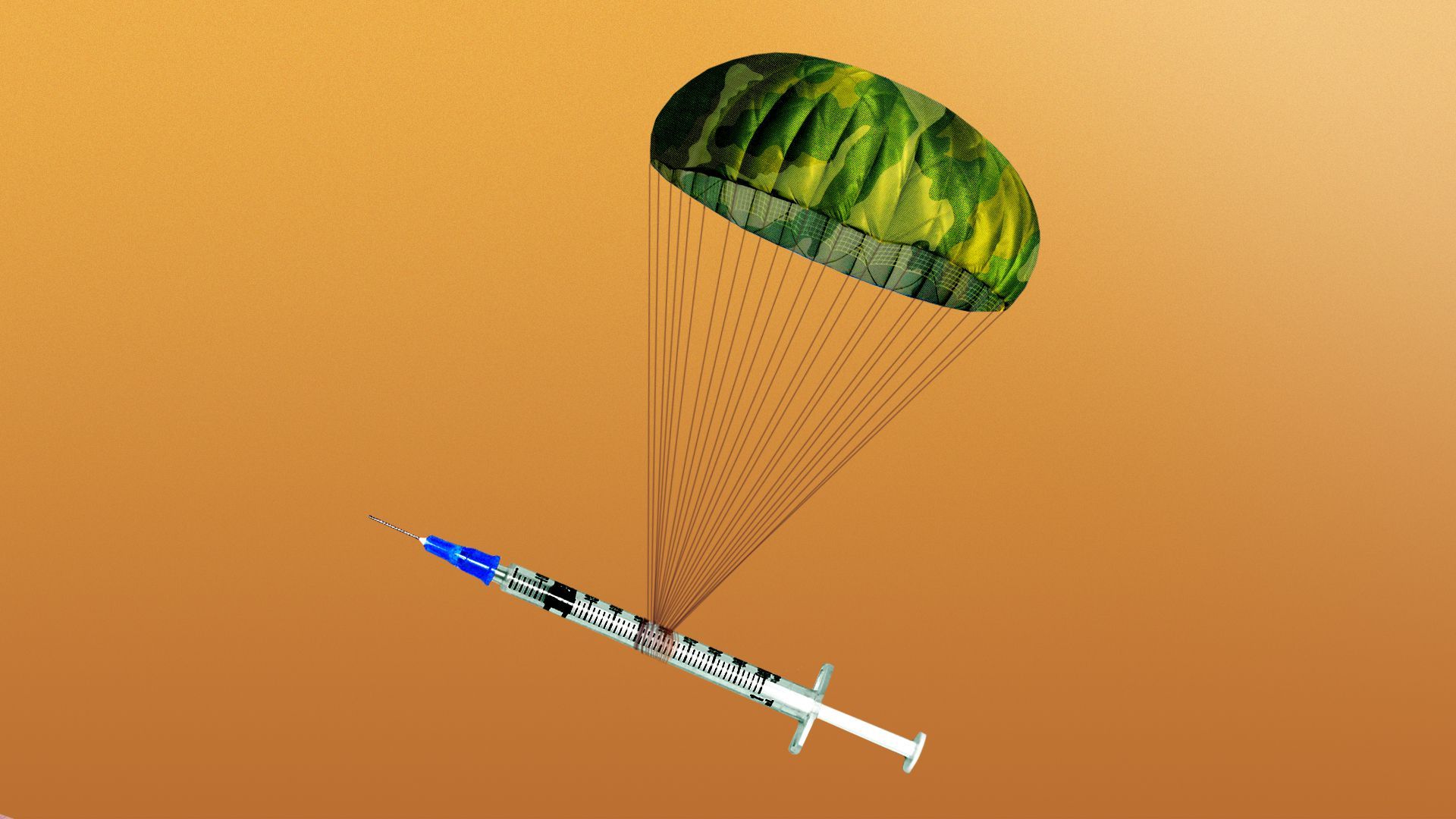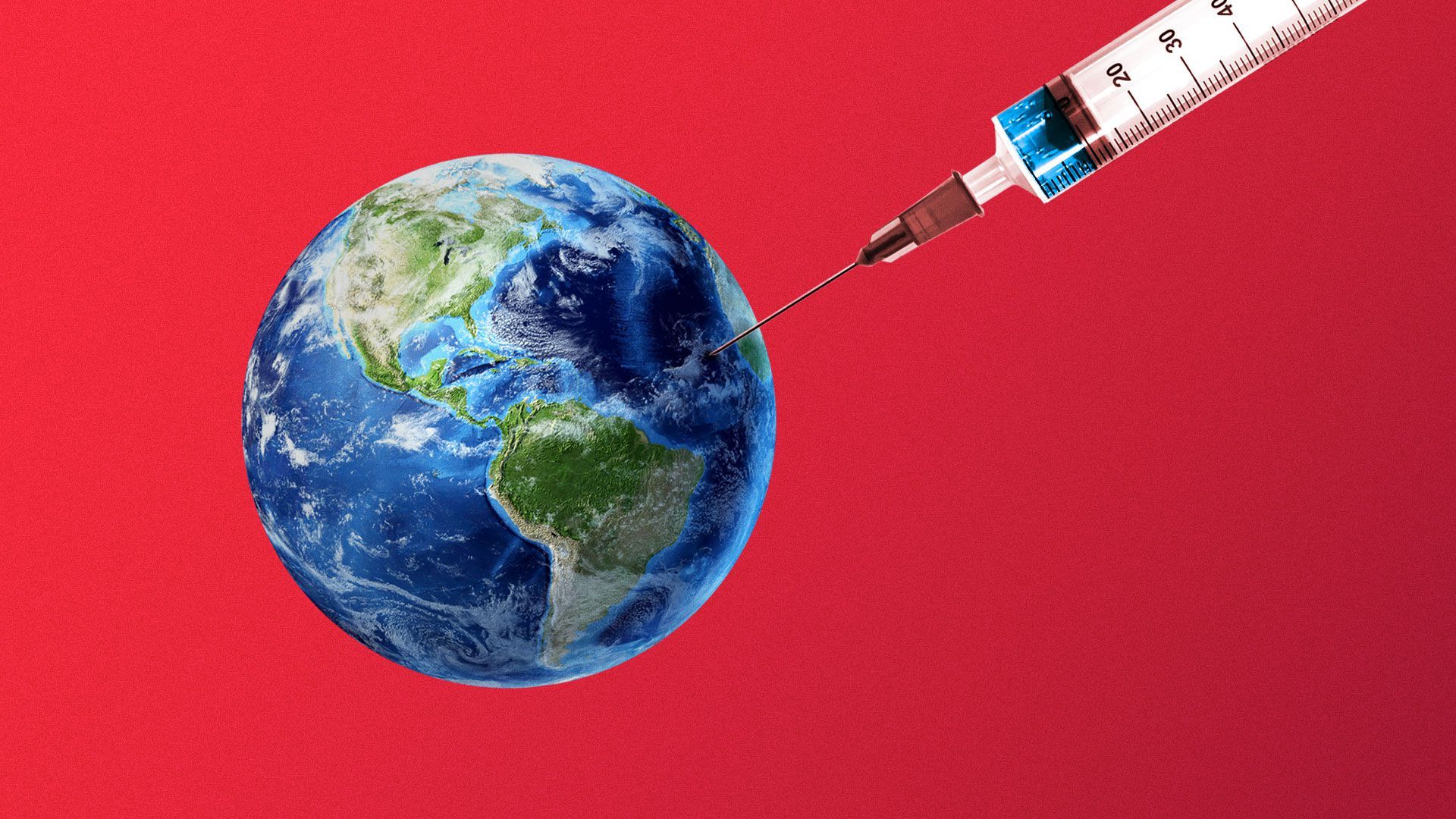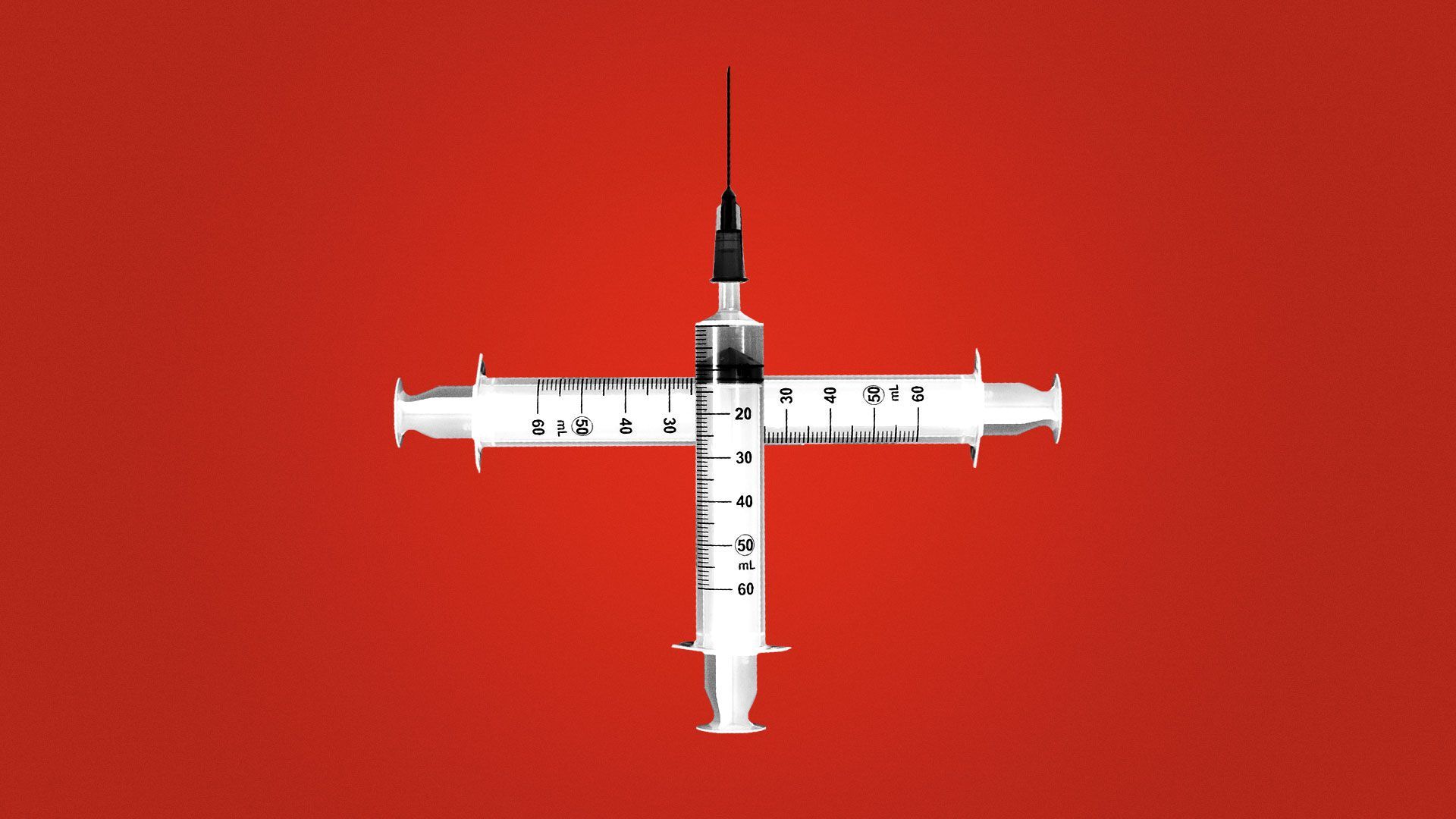The state of the global race for a coronavirus vaccine
Add Axios as your preferred source to
see more of our stories on Google.

Illustration: Annelise Capossela/Axios
Vaccines from the U.K., U.S. and China are sprinting ahead in a global race that involves at least 197 vaccine candidates and is producing geopolitical clashes even as it promises a possible pandemic escape route.
Driving the news: The first two candidates to reach phase three trials — one from the University of Oxford and AstraZeneca, the other from China — both appear safe and produce immune responses, according to preliminary results published today in The Lancet.
- A vaccine from Moderna, the U.S. biotech firm, is heading into phase three trials after similarly encouraging initial results.
- There are at least 16 other vaccines currently in clinical trials in Australia, France, Germany, India, Russia, South Korea, the U.K., the U.S. and China, which is experimenting with a variety of vaccine types and has five candidates already in trials.
What they're saying: Experts are increasingly confident that it's no longer a question of if but when vaccines will be available.
- "Absolutely, for sure, we will get more than one vaccine," Barry Bloom, a professor of public health at Harvard, told reporters today.
- He cautioned that it's not yet clear which vaccines will win the race and that we won't know how effective they are in protecting against COVID-19 — and for how long — until after phase three trials.
Pressed on when a vaccine could be approved, Bloom said that while it seemed "utterly crazy seven months ago," January was looking increasingly realistic.
- Richard Horton, The Lancet's editor-in-chief, is more cautious: "If we have a vaccine by the end of 2021, we will have done incredibly well."
- Zeke Emanuel, chair of the Department of Medical Ethics and Health Policy at the University of Pennsylvania, splits the difference: "Seven months after we got the genome, to have three vaccines in phase three is literally unprecedented. If in six to eight months we get a license, that will be, again, totally unprecedented in world history."
But, but, but: "Getting something approved doesn't protect you from COVID," Emanuel warns.
- The challenges of producing, distributing and delivering a vaccine (particularly in two doses, as the Oxford vaccine requires) around the entire world are hard to even fathom.
- Even distributing a vaccine in one country will require an unprecedented buildup of facilities, materials (like glass vials), personnel and protocols, assuming enough people are even willing to take it.

The global picture is even murkier. Several countries and pharmaceutical companies have committed to "fair and equitable" distribution.
- In principle, that would suggest a vulnerable front-line worker in Uganda, say, should get the vaccine before a young, healthy person in the United States.
- In practice, well ... no one really knows.
The bottom line: "It's very fragmented, and in some ways that's understandable," Horton says. "But the danger of that is that many countries will lose out and only the strongest country, the country with the most money, will win."
- If countries hoard supplies rather than prioritizing at-risk people elsewhere, Bloom says, "that should be a cause not just of global concern but of global shame."
For now, governments are prioritizing their own populations.
- The Trump administration is pouring at least $3.5 billion into the development and manufacture of three leading vaccine candidates, with the promise of hundreds of millions of doses should they prove safe and effective.
- Even as the homegrown Oxford vaccine takes a global lead, the U.K. is hedging its bets by purchasing 90 million doses being developed by German and French companies.
- The U.K. and U.S. have both also put in large pre-orders of the Oxford vaccine, though AstraZeneca says 1 billion doses will also be manufactured in India and distributed mainly to other low- and middle-income countries.
- The WHO and EU are attempting to create a framework for distributing the vaccine globally, though the U.S. has declined to take part.

What to watch: Managing the largest vaccination project in history will clearly require global collaboration — but it's also becoming a competition between rival powers.
- “Six months from now, we will be in a situation where a few countries will have vaccines, and we believe those countries will be the UK, Russia, China and the US,” Kirill Dmitriev, the head of Russia's sovereign wealth fund, told the FT.
Between the lines: Others are less certain Russia will be in that group, though Dmitriev says a vaccine bankrolled by his fund and developed by the state-run Gamaleya Institute will move into phase three trials next month.
“Basically other countries will decide, you know, which vaccine to buy ... and who do you trust?”— Kirill Dmitriev
State of play: There's a clear lack of trust among the competitors.
- According to the U.S, U.K. and Canada, hackers linked to Russian military intelligence have attempted to steal vaccine research in order to aid their own efforts.
- The U.S. has also accused China of pilfering American research.
- House Republican leader Kevin McCarthy will introduce a bill on Tuesday that would sanction foreign hackers attempting to steal U.S. vaccine research, according to a copy of the bill obtained by Axios' Alayna Treene.
Zoom out: It will be a victory for humanity when the first coronavirus vaccines are approved. But the competition to obtain one early goes beyond national pride.
- Vaccines will save countless lives, drive economic recoveries, and could provide rare opportunities to generate goodwill and influence abroad.
- "There's a huge soft power advantage to the U.S. ensuring that other countries can get the vaccine and protect themselves," Emanuel says. The same would, of course, be true for China.
The bottom line: The race is on, but it won't end when the first vaccine is approved.
